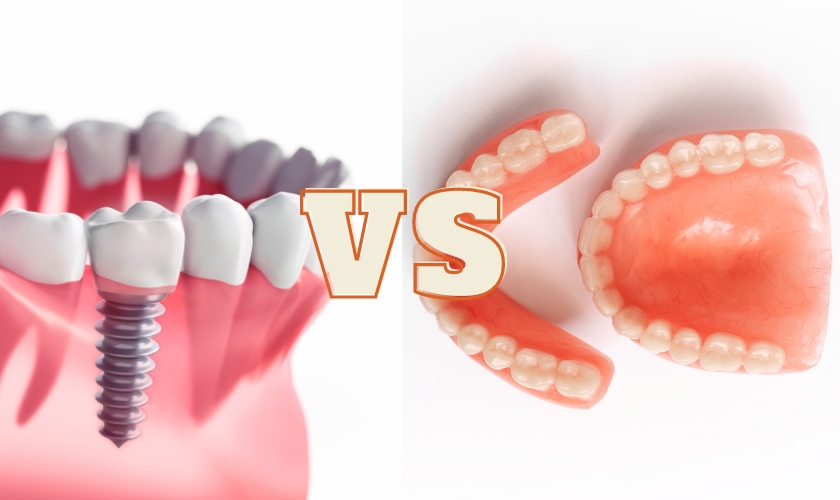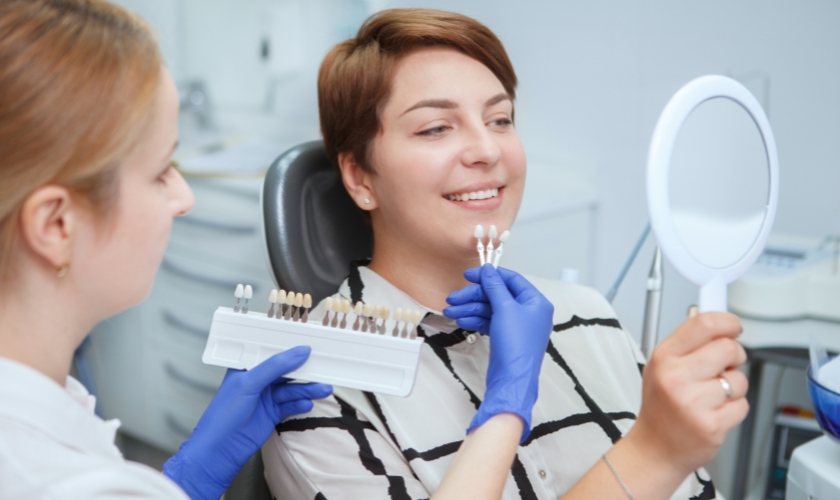
Emergency Dentistry FAQs: Answers To Common Questions About Dental Emergencies
Emergencies can strike at any time, and dental issues are no exception. When faced with a dental emergency, it’s crucial to address it promptly to avoid further complications and alleviate pain. In this blog, we will delve into the world of dental emergencies and provide you with answers to common questions. From understanding what constitutes a dental emergency to knowing how to prevent it, we’ve got you covered.
Common dental emergencies
Let’s explore the common dental emergencies in more detail:
Toothache: Toothaches can be excruciating. Rinse your mouth, floss to remove debris, and take over-the-counter pain relievers while awaiting dental care.
Broken or chipped tooth: Save broken pieces, rinse your mouth, and apply a cold compress to reduce swelling.
Knocked-out tooth: Handle the tooth by the crown, not the root. Rinse it gently, place it back in the socket if possible, or store it in milk or a tooth preservation kit.
Lost filling or crown: Over-the-counter dental cement can temporarily cover the exposed area.
Abscess or infection: Rinse your mouth with saltwater and take over-the-counter pain relievers, but seek immediate dental care.
Broken braces or wires: Use orthodontic wax to cover sharp edges, and call your orthodontist for guidance.
What to do in a dental emergency
When faced with a dental emergency, follow these steps:
Stay calm and assess the situation: Panicking can make matters worse. Assess the severity of the emergency to determine your next steps.
Contacting an emergency dentist: Find a nearby emergency dentist and call them immediately. Explain your situation for guidance and to ensure they can accommodate you.
Handling toothache and pain relief: Rinse your mouth, floss, and take over-the-counter pain relievers as directed.
Tips for preserving a knocked-out tooth: Time is critical; keep the tooth moist and avoid touching the root. See a dentist within an hour.
Temporary fixes for broken teeth or lost fillings/crowns: Dental cement and over-the-counter products can provide temporary relief.
Dealing with abscesses or infections: Rinse your mouth with warm saltwater, take pain relievers, and seek immediate dental care.
Managing broken braces or wires: Cover sharp edges with orthodontic wax and contact your orthodontist for guidance.
Is it necessary to see an emergency dentist?
In a dental emergency, it is essential to seek professional evaluation and treatment. Dentists are equipped to handle emergencies effectively, providing immediate relief and preventing further complications. Waiting can lead to more severe pain, infection, or the loss of a tooth. Don’t take unnecessary risks – seek help promptly.
How to prevent dental emergencies
Prevention is always better than cure. To avoid dental emergencies:
Maintain good oral hygiene: Regular brushing, flossing, and mouthwash can prevent many dental issues.
Regular dental check-ups and cleanings: These can catch problems before they become emergencies.
Protecting teeth during physical activities: Wear mouthguards in contact sports and avoid chewing hard objects like ice or popcorn kernels.
Avoiding harmful habits: Quit smoking and limit sugary and acidic foods and drinks.
What to expect during an emergency dental visit
When you visit an emergency dentist, you can expect:
Evaluation and diagnosis: The dentist will assess your condition, possibly taking X-rays, and provide a diagnosis.
Treatment options: They will discuss treatment options and help you make an informed decision.
Pain management: Immediate relief is a priority. The dentist will ensure you’re comfortable during the procedure.
Follow-up care and recovery: You may need to return for additional treatment or check-ups to ensure your dental health is fully restored.
Insurance coverage for dental emergencies
Dental insurance can vary in coverage for emergencies. It’s important to understand your policy and what it covers. In some cases, emergency dental care may be covered, but you may need to pay a deductible or copayment. Familiarize yourself with your insurance to be prepared for any unexpected dental costs.
Frequently asked questions about dental emergencies.
Let’s address some common concerns and misconceptions:
“Is it normal for my gums to bleed when I brush my teeth?” Occasional bleeding might be normal, but consistent bleeding may indicate a dental problem.
“Can I use aspirin to relieve toothache?” Aspirin should not be placed directly on the tooth. Use over-the-counter pain relievers as directed.
“Are dental emergencies common?” While they may not be as common as other medical emergencies, dental emergencies do happen, and it’s crucial to know how to respond.
“I have a chipped tooth, but it doesn’t hurt. Do I still need to see a dentist?” Yes, even painless damage can lead to complications. It’s best to have it assessed.
Dental emergencies require immediate attention to alleviate pain, prevent complications, and save your smile. Understanding what constitutes a dental emergency and how to respond can make all the difference. Prioritizing oral hygiene, regular dental check-ups, and being prepared for emergencies will help you maintain your dental health. Remember, quick action and professional care can make a significant impact on the outcome of a dental emergency.






